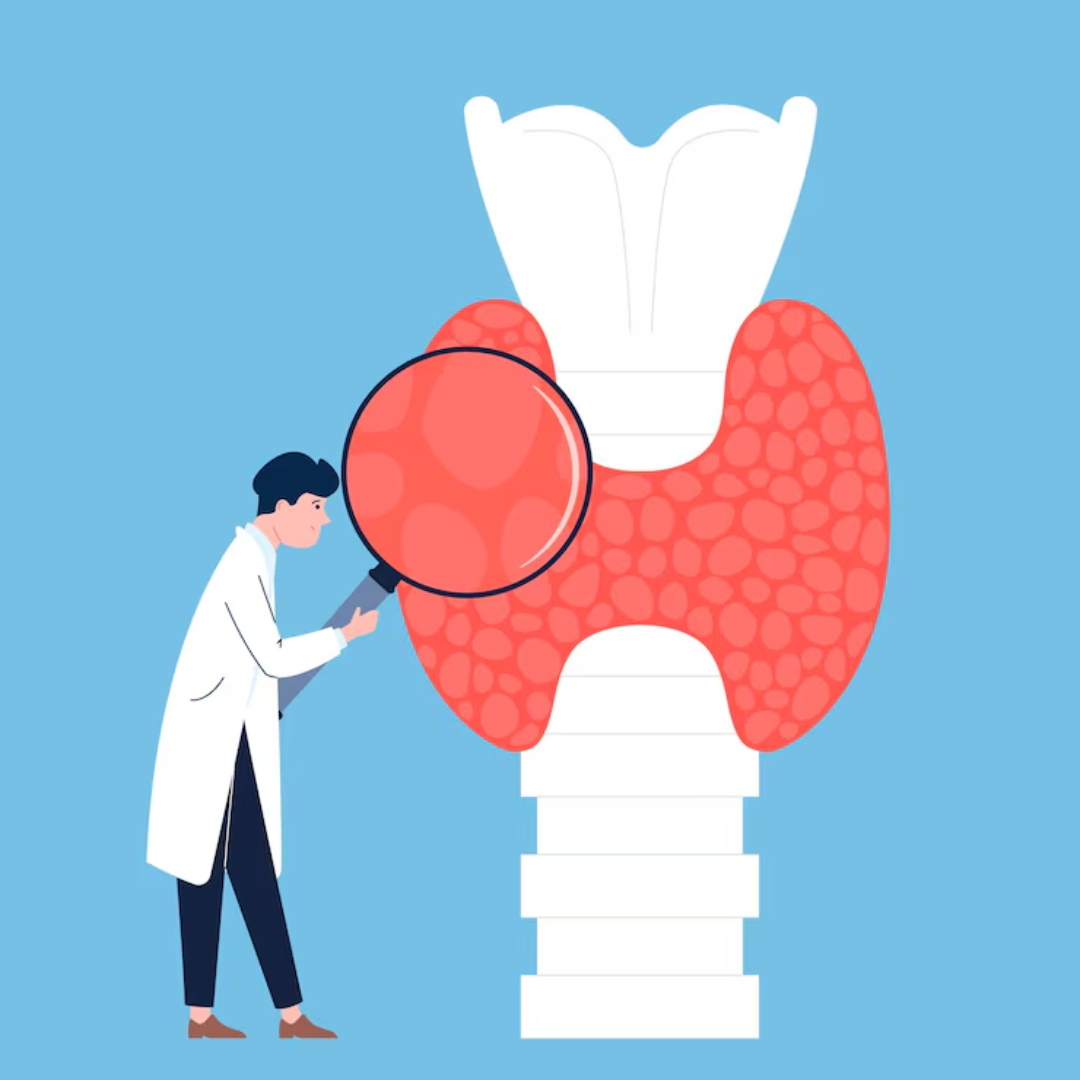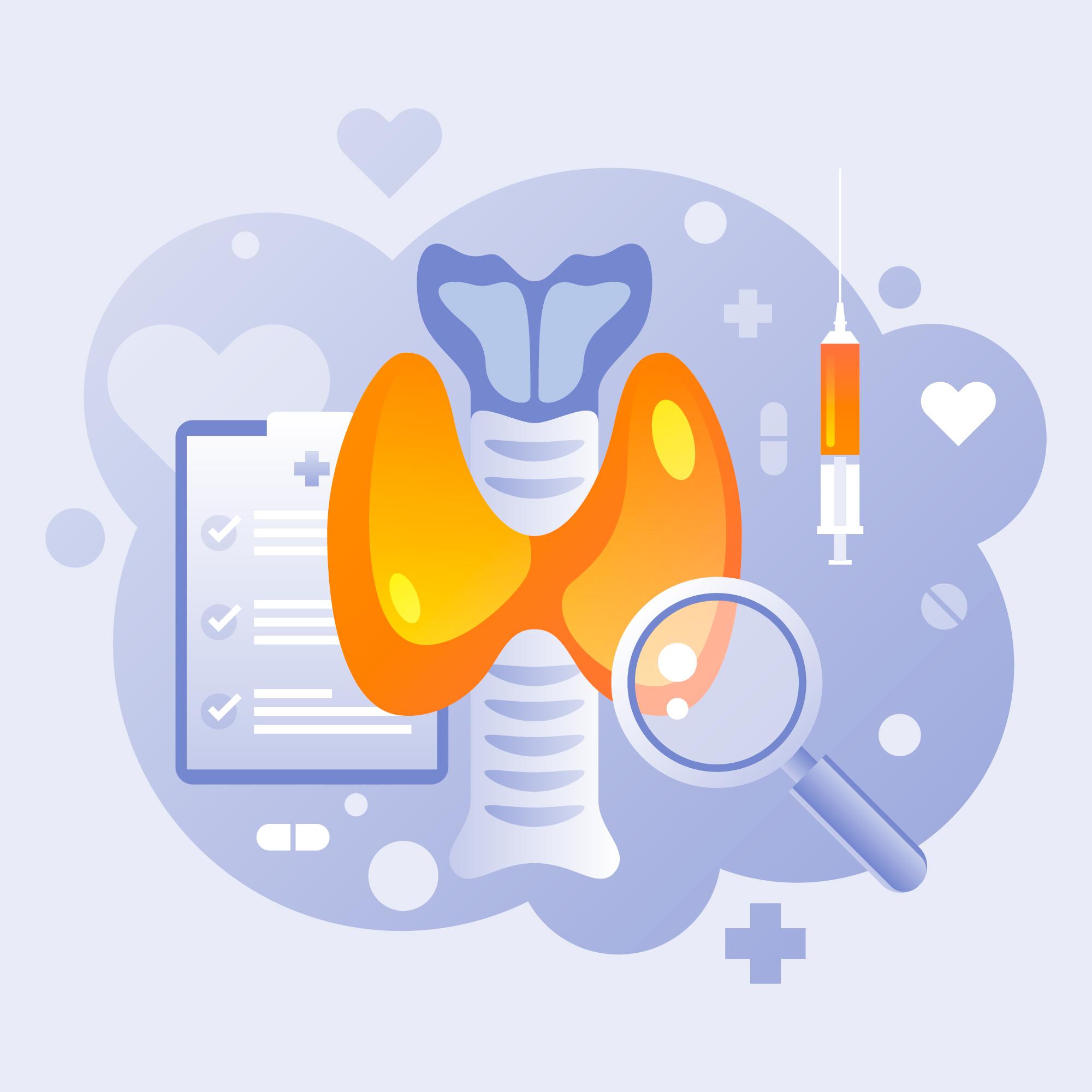Recent Updates
-
A 28-year-old woman presents with fatigue, cold intolerance, constipation, and weight gain.
What’s your most likely diagnosis?A 28-year-old woman presents with fatigue, cold intolerance, constipation, and weight gain. What’s your most likely diagnosis?25330 Comments 0 Shares 6K Views14 Please log in to like, share and comment!
Please log in to like, share and comment! -
What Is Endocrinology?
Endocrinology is the branch of medicine that focuses on the endocrine system, which is responsible for producing and regulating hormones in the body. Hormones act as chemical messengers that influence many essential functions — including metabolism, growth, mood, reproduction, and energy balance. Endocrinologists are specialists who diagnose and manage conditions caused by hormonal imbalances, gland dysfunctions, and metabolic disorders.
Common endocrine disorders include diabetes, thyroid diseases (like hypothyroidism and hyperthyroidism), polycystic ovary syndrome (PCOS), adrenal disorders, and osteoporosis. In children, endocrinology also covers issues like growth delays and early or delayed puberty. Because hormonal imbalances can affect multiple systems, symptoms are often widespread — including fatigue, weight changes, mood shifts, irregular periods, and more.
Treatment in endocrinology often requires long-term care, lifestyle adjustments, and in many cases, medication or hormone replacement therapy. If you experience persistent symptoms that point to a hormonal imbalance, it's important to consult an endocrinologist for evaluation and management.What Is Endocrinology? Endocrinology is the branch of medicine that focuses on the endocrine system, which is responsible for producing and regulating hormones in the body. Hormones act as chemical messengers that influence many essential functions — including metabolism, growth, mood, reproduction, and energy balance. Endocrinologists are specialists who diagnose and manage conditions caused by hormonal imbalances, gland dysfunctions, and metabolic disorders. Common endocrine disorders include diabetes, thyroid diseases (like hypothyroidism and hyperthyroidism), polycystic ovary syndrome (PCOS), adrenal disorders, and osteoporosis. In children, endocrinology also covers issues like growth delays and early or delayed puberty. Because hormonal imbalances can affect multiple systems, symptoms are often widespread — including fatigue, weight changes, mood shifts, irregular periods, and more. Treatment in endocrinology often requires long-term care, lifestyle adjustments, and in many cases, medication or hormone replacement therapy. If you experience persistent symptoms that point to a hormonal imbalance, it's important to consult an endocrinologist for evaluation and management.0 Comments 0 Shares 8K Views16
-
-
Endocrinology deals with the endocrine system, which includes glands and hormones that regulate metabolism, growth, reproduction, and mood. While medical treatment is essential for managing hormonal disorders like diabetes, thyroid issues, and PCOS, certain home remedies and lifestyle habits can support better endocrine health when used alongside proper medical care.
🏡 Home Remedies to Support Endocrine Health
🥦 1. Eat a Hormone-Friendly Diet
Include whole grains, leafy greens, seeds (flax, chia), and healthy fats (like avocado, nuts).
Limit refined sugars and processed foods to avoid blood sugar spikes and hormonal imbalances.
For thyroid support: eat selenium-rich foods like Brazil nuts and zinc-rich foods like pumpkin seeds.
🧘 2. Manage Stress Naturally
Chronic stress can disrupt cortisol, thyroid, and reproductive hormones.
Try meditation, deep breathing, yoga, or even a daily walk to help regulate stress levels.
3. Prioritize Quality Sleep
Aim for 7–9 hours of sleep to support hormone production and balance (like melatonin, growth hormone, and insulin).
Maintain a consistent sleep schedule and reduce screen time before bed.
🚶 4. Stay Physically Active
Regular exercise improves insulin sensitivity, boosts metabolism, and helps with hormonal regulation.
Choose low-impact exercises like walking, swimming, or cycling to reduce inflammation and improve mood.
🍵 5. Use Herbal Teas (with caution)
Ashwagandha: May help balance cortisol and support thyroid function.
Fenugreek: Traditionally used to support blood sugar control in diabetes.
Spearmint tea: May help reduce excess androgens in women with PCOS.
Always consult a doctor before using herbs, especially if you have a diagnosed condition or take medication.
🚱 6. Avoid Endocrine Disruptors
Minimize use of plastics (especially when heating food), artificial fragrances, and pesticides.
Opt for natural cleaning and personal care products where possible.
Important Note:
Home remedies support but do not replace medical treatment. Conditions like diabetes, thyroid disorders, or adrenal issues require regular monitoring and guidance from an endocrinologist.
Endocrinology deals with the endocrine system, which includes glands and hormones that regulate metabolism, growth, reproduction, and mood. While medical treatment is essential for managing hormonal disorders like diabetes, thyroid issues, and PCOS, certain home remedies and lifestyle habits can support better endocrine health when used alongside proper medical care. 🏡 Home Remedies to Support Endocrine Health 🥦 1. Eat a Hormone-Friendly Diet Include whole grains, leafy greens, seeds (flax, chia), and healthy fats (like avocado, nuts). Limit refined sugars and processed foods to avoid blood sugar spikes and hormonal imbalances. For thyroid support: eat selenium-rich foods like Brazil nuts and zinc-rich foods like pumpkin seeds. 🧘 2. Manage Stress Naturally Chronic stress can disrupt cortisol, thyroid, and reproductive hormones. Try meditation, deep breathing, yoga, or even a daily walk to help regulate stress levels. 😴 3. Prioritize Quality Sleep Aim for 7–9 hours of sleep to support hormone production and balance (like melatonin, growth hormone, and insulin). Maintain a consistent sleep schedule and reduce screen time before bed. 🚶 4. Stay Physically Active Regular exercise improves insulin sensitivity, boosts metabolism, and helps with hormonal regulation. Choose low-impact exercises like walking, swimming, or cycling to reduce inflammation and improve mood. 🍵 5. Use Herbal Teas (with caution) Ashwagandha: May help balance cortisol and support thyroid function. Fenugreek: Traditionally used to support blood sugar control in diabetes. Spearmint tea: May help reduce excess androgens in women with PCOS. Always consult a doctor before using herbs, especially if you have a diagnosed condition or take medication. 🚱 6. Avoid Endocrine Disruptors Minimize use of plastics (especially when heating food), artificial fragrances, and pesticides. Opt for natural cleaning and personal care products where possible. ⚠️ Important Note: Home remedies support but do not replace medical treatment. Conditions like diabetes, thyroid disorders, or adrenal issues require regular monitoring and guidance from an endocrinologist.0 Comments 0 Shares 5K Views 16
16
More Stories



















